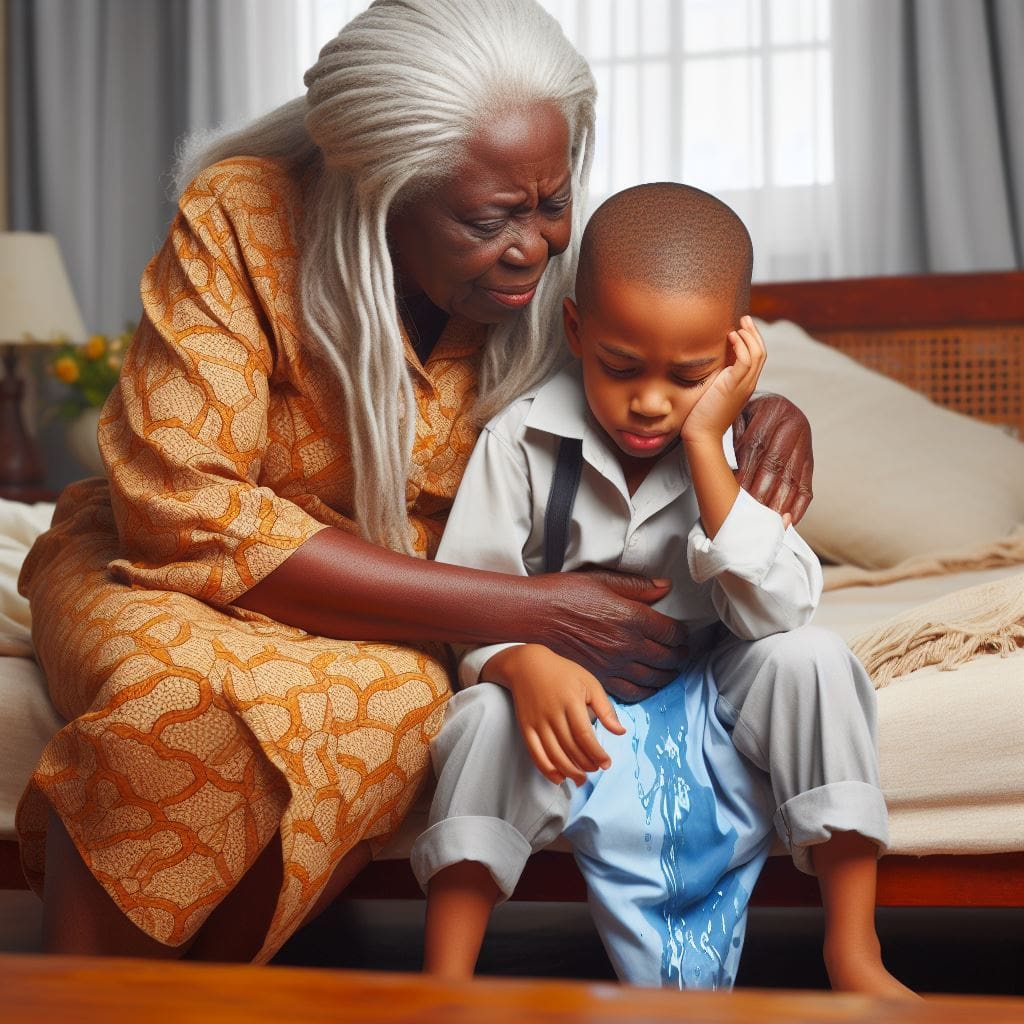
While it’s normal for young children who are still learning bladder control, bed-wetting can be frustrating and embarrassing for older kids and adults, but the good news is that there are effective strategies to help manage and overcome it.
In this article, we’ll delve into some easy-to-follow tips and techniques to manage bed-wetting effectively and improve sleep quality for everyone involved.
With a little patience and persistence, you can help yourself or your loved one conquer bed-wetting and wake up feeling refreshed every morning.
Is My Child Bed-wetting Too Much?
Most children achieve nighttime bladder control by the age of 5 or 6. Occasional accidents happen, especially during stressful times or with new sleep routines.
However, if your child wets the bed more than twice a week for three months in a row, it’s a good idea to talk to their doctor.
When to See a Doctor
Occasional bed-wetting is normal in young children. However, if your child:
- Is over 7 years old and wets the bed at least twice a week for three months in a row
- Starts bed-wetting after a period of dryness
- Experiences daytime wetting
- Has pain while urinating
- Shows excessive thirst
Why Does Bed-wetting Happen?
There are a few reasons why bed-wetting might occur in both children and adults:
- Small Bladder: Some children and adults have a smaller bladder capacity and simply can’t hold urine all night.
- Deep Sleeper: If your child sleeps very soundly, they might not wake up when their bladder is full.
- Sleep Disorders: Sleep apnea, a condition where breathing pauses during sleep, can disrupt sleep patterns and lead to bed-wetting.
- Hormonal Imbalance: A lack of a hormone called vasopressin can affect how the body stores urine at night.
- Medical Conditions: Diabetes, Urinary tract infections (UTIs) or constipation and other neurological problems can sometimes contribute to bed-wetting.
- Psychological Stress: Anxiety, depression, or past experiences with bed-wetting can also be contributing factors.
There’s no strong scientific evidence that simply eating too late at night directly causes children to wet the bed. However, it can be a contributing factor in some cases. Here’s why:
- Increased Fluid Intake: Eating close to bedtime might lead a child to drink more fluids, which then fills their bladder more before sleep.
- Disrupted Sleep: Certain foods, especially sugary or spicy ones, can disrupt sleep patterns. If a child sleeps less soundly, they might not wake up when their bladder is full, leading to them to wet the bed.
Negative Effects of Adult Bed-wetting:

Waking up to a wet bed can be extremely embarrassing and frustrating most especially as an adult.
This can have a negative effect on you and even on those around you.
- Emotional Distress: Wetting the bed can lead to feelings of shame, embarrassment, and isolation.
- Social Anxiety: Social activities and sleepovers can become a source of worry
- Sleep Issues: Frequent bed-wetting can disrupt sleep, leading to daytime fatigue.
- Skin Irritation: Constant dampness can irritate the skin in the genital area.
- Impact on Relationships: Sharing a bed with someone who wets the bed can be challenging for both partners.
Conquering Bed-wetting: Strategies for Success for Children

If your child is struggling with bed-wetting, there are steps you can take to help:
- Talk it Out: Open communication is key. Reassure your child that wetting the bed is common and there’s no shame in it.
- Limit Fluids Before Bed: Encourage your child to drink plenty of fluids throughout the day, but avoid large amounts right before bedtime.
- Double Voiding: Before bed, have your child try going to the bathroom twice to ensure their bladder is completely empty.
- Bladder Training Exercises: Talk to your doctor about exercises to help strengthen your child’s bladder muscles.
- Focus on Healthy Foods: Opt for lighter, healthier meals closer to bedtime to avoid digestive discomfort and promote sound sleep.
- Waterproof Mattress Pad: Protect your mattress with a waterproof pad for easier clean-up.
- Positive Reinforcement: Reward dry nights with praise and encouragement, not punishment for accidents.
Overcoming Bed-wetting: Steps to a Drier Night’s Sleep for Adults
If you’re an adult struggling with bed-wetting, here’s what you can do:
- See a Doctor: Talk to your doctor to rule out any underlying medical conditions.
- Bladder Training Exercises: Your doctor might recommend exercises to strengthen your bladder muscles and improve control.
- Lifestyle Changes: Limit fluids before bed, avoid caffeine and alcohol, and practice double voiding (going to the bathroom twice before bed).
- Medications: In some cases, medication can help regulate urine production or bladder control.
- Pelvic Floor Muscle Therapy: Exercises that target the pelvic floor muscles can improve bladder control.
- Moisture Alarm Therapy: This alarm uses a sensor to detect wetness and wakes you up to use the bathroom.
Regaining Control and Restful Nights
Wetting the bed, while a common issue for young children and sometimes adults, can be effectively managed. With a little understanding and the right approach, you can achieve restful nights for everyone.
Remember that:
- Early intervention is key: Talk to your doctor if wetting the bed becomes a regular occurrence, especially for older children or adults.
- Open communication: Create a supportive environment where children feel comfortable discussing bed-wetting without shame.
- Simple strategies make a big difference: Limiting fluids before bed, practicing double voiding, and bladder training exercises can be powerful tools.
By working together and implementing these steps, you can overcome bed-wetting and experience a better night’s sleep. Don’t hesitate to seek professional help from a doctor if needed. There’s no shame in seeking a solution- a good night’s sleep is within reach!



